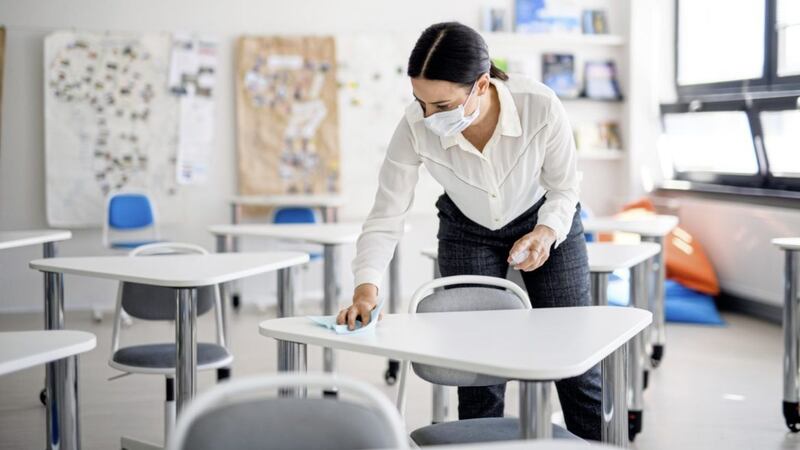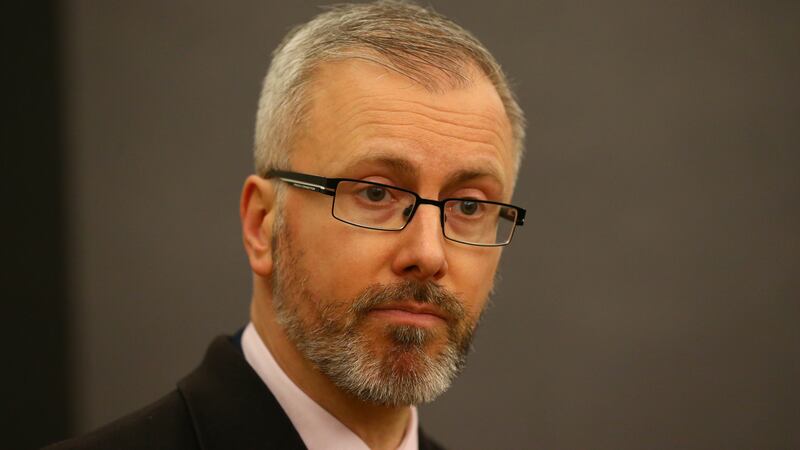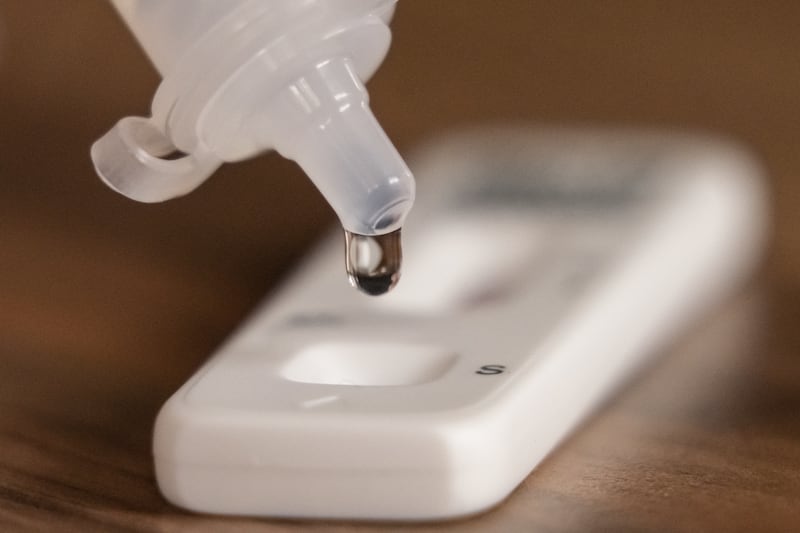The Irish Government has agreed to close schools from Monday January 11 to curb the spread of Covid-19, it has been confirmed.
Leaving Cert students, however will still attend three days a week.
The Cabinet has agreed a raft of new tight restrictions as the virus spreads throughout communities across the country.
Minister agreed to the measures at a meeting today to bring spiralling Covid-19 case numbers under control.
Schools are to remain open five days a week, with final-year students alternating their attendance for three out of five days.
Other measures approved by Cabinet include closing non-essential construction from 6pm on Friday, and the end of click-and-collect services for retail outlets.
Taoiseach Micheál Martin said: "People have been asked to give up so much for so long that we risk losing sight of why we are doing this. So, I want to talk for a moment about the why.
"As of now, 3,679 people across our island have died after having contracted Covid.
"As I stand here, hospitals across the country, across these islands and across Europe are under siege from the disease with already exhausted healthcare workers now facing a tsunami of infection, even greater than the first wave.
"Already we have more Covid patients in our hospitals than ever before. In addition, we have an even more infectious strain of the virus in our midst.
"The study by London's Imperial College suggests that the new strain increases the number by between 0.4 and 0.7, which can rapidly lead to growth well beyond previous worst-case scenarios.
"That is why we are doing this. That is why we must dig deep within ourselves and faced the coming month with steely determination and resolve.
"We simply have to suppress this surge and flatten the curve. Once again, the personal decisions that each and every one of us makes over the coming month will directly affect how many more people get sick and how many more people die."
Today, Minister for justice Helen McEntee revealed she has tested positive for Covid-19.
Ms McEntee, who is pregnant with her first child, confirmed the news on Twitter.
She posted: "I was recently tested and have received a positive result for #Covid19.
"In line with our HSE guidance I am isolating. I am continuing to carry out my duties by working remotely including attending Cabinet.
"The information the HSE has shows that pregnant women or their babies are not at a higher risk if we get Covid-19.
"At the same time I urge everyone to follow public health advice and stay at home. If you think you're developing symptoms no matter how small, act as though you have Covid.
"We all know the seriousness of the situation. We must protect our health system and our most vulnerable."
The minister announced last month she is pregnant and her baby is due in May.
She is the second government minister to test positive for the virus.
Last month, Agriculture Minister Charlie McConalogue confirmed he had contracted coronavirus. He was due to end his 14-day isolation period this week.
Today, the number of people in hospital with Covid-19 surpassed the peak of the first wave, the head of the Health Service Executive (HSE) said.
The previous highest number of patients with the virus in hospital was 881 on April 15.
Paul Reid, HSE chief executive, tweeted: "With 921 people in hospital, we've now exceeded the peak level of the 1st wave (881). 75 in ICU. Healthy people are getting very sick.
"Everyone gets how serious this is now. Let's all do what's needed, turn this around, save lives whilst the vaccine arrives. We have to."
The number of coronavirus patients in hospital jumped from 817 on Tuesday to 921 by Wednesday morning.
Health officials have been sounding warnings over the sharp rise in people needing hospital treatment for the virus.
A National Public Health Emergency Team briefing on Monday heard that the number of people in intensive care units could rise to between 200 and 400 by the middle of January if people failed to take action.
Speaking on his way into the Cabinet meeting, Health Minister Stephen Donnelly said the UK variant of the virus was "far more contagious" than anything else Ireland had dealt with so far.
"The situation now to my mind is as serious as it's been since the start of this," he said.
"We got more evidence last night. It's still early evidence but more evidence of the prevalence and the rapid spread of the UK variant. This UK variant is unlike anything we have dealt with in this country so far. We're seeing what it's doing in the UK and what it is doing in countries across Europe.
"We know it's here; the only question is to what level it is here. It is far more contagious than anything we have dealt with so far. So regardless with what Cabinet decides today, everything is focused around one message - which is stay at home."
Mr Donnelly urged anyone who was in the vulnerable category to take extra care and behave as they did in the first lockdown in March.
Meanwhile, a record 7,836 confirmed cases of Covid-19 have been reported today in the Republic, along with an additional 17 deaths linked to the virus.
There are now 954 Covid-19 patients in Irish hospitals. The number of people in intensive care units with the disease is now 88, an increase of 12 in the past 24 hours.
There were 105 additional hospitalisations in the past 24 hours.
Chief medical officer Dr Tony Holohan said: "The country is in a serious phase of this surge of Covid-19. There is evidence of an increasing presence of the UK variant in Ireland. All counties have an upward trajectory of the disease.
"There is concerning escalation of admissions to hospital and ICU. We are very likely to see escalating mortality and ICU admissions in the coming days and weeks.
"It has never been more important, throughout our experience of this pandemic, to stay home and only meet people outside of your household for essential purposes, always adhering to public health advice; physical distance, hand hygiene, cough/sneeze etiquette, wearing a face covering."








